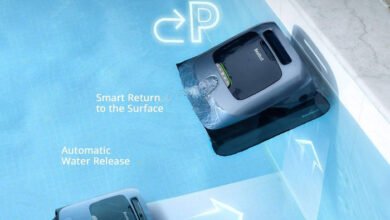Precision Measurement: The Art and Science of Accurate and Reliable Quantification

Precision measurement is a cornerstone of modern science, engineering, and technology. It involves the meticulous process of quantifying physical properties with a high degree of accuracy and consistency. This comprehensive guide explores the fundamentals of precision measurement, its importance, various techniques and tools, and future trends in this critical field.
1. What is Precision Measurement?
Precision measurement refers to the ability to obtain consistent and repeatable results when measuring a physical property. It emphasizes minimizing errors and achieving high accuracy in measurement processes. Unlike accuracy, which refers to how close a measurement is to the true value, precision is about the reproducibility of measurements under the same conditions.
1.1 Importance of Precision Measurement
Precision measurement is crucial for ensuring the reliability and validity of scientific experiments, engineering designs, and industrial processes. High precision is required to:
- Ensure Quality: In manufacturing and production, precision measurements are essential for maintaining product quality and meeting specifications.
- Advance Research: Accurate measurements are fundamental to scientific research and development, where small discrepancies can impact findings and conclusions.
- Support Safety: In fields like aerospace and medicine, precise measurements are vital for safety and functionality, ensuring systems operate correctly and safely.
1.2 Key Concepts in Precision Measurement
- Reproducibility: The ability to obtain consistent results when the same measurement is repeated under the same conditions.
- Resolution: The smallest increment of measurement that a device or instrument can detect.
- Uncertainty: The estimated range within which the true value of a measurement is expected to lie, reflecting the limitations of measurement tools and methods.
2. Techniques and Tools for Precision Measurement
Various techniques and tools are employed to achieve precision in measurements, each suited for different types of measurements and applications.
2.1 Mechanical and Dimensional Measurements
- Calipers: Used for measuring the dimensions of objects with high accuracy, including inside, outside, and depth measurements.
- Micrometers: Provide highly precise measurements of small dimensions, often used in mechanical engineering and manufacturing.
2.2 Optical Measurements
- Interferometry: Utilizes the interference of light waves to measure distances with extreme precision. Commonly used in metrology and optical testing.
- Laser Measurement Systems: Employ laser beams to measure distances, angles, and dimensions with high accuracy and resolution.
2.3 Electrical Measurements
- Digital Multimeters: Measure electrical properties such as voltage, current, and resistance with high precision.
- Oscilloscopes: Used to measure and visualize electronic signals over time, providing detailed information about signal characteristics.
2.4 Temperature and Environmental Measurements
- Thermocouples and RTDs: Measure temperature with high accuracy and are widely used in industrial and scientific applications.
- Hygrometers: Measure humidity levels with precision, crucial for environmental control and scientific experiments.
3. Applications of Precision Measurement
Precision measurement plays a vital role in various fields, ensuring accuracy and reliability across diverse applications.
3.1 Scientific Research
In scientific research, precision measurement essential for collecting accurate data and validating hypotheses. It supports experiments in physics, chemistry, biology, and other fields where precise quantification is necessary.
3.2 Engineering and Manufacturing
In engineering and manufacturing, precision measurement ensures that components and systems meet design specifications and tolerances. It helps in quality control, production efficiency, and the development of advanced technologies.
3.3 Aerospace and Defense
Precision measurement is critical in aerospace and defense for designing and testing components and systems. It ensures that instruments and machinery operate within required specifications and meet stringent safety standards.
3.4 Medicine and Healthcare
In medicine and healthcare, precision measurement is used in diagnostic equipment, monitoring systems, and medical research. Accurate measurements are crucial for effective treatment and patient care.
4. Challenges and Considerations
Achieving precision in measurement involves addressing several challenges and considerations to ensure reliable results.
4.1 Calibration and Maintenance
Regular calibration and maintenance of measurement tools and instruments are essential for maintaining their accuracy and precision. Calibration ensures that instruments provide correct readings, while maintenance prevents issues that could affect performance.
4.2 Measurement Uncertainty
Understanding and managing measurement uncertainty is crucial for interpreting results accurately. This involves identifying sources of error, such as environmental factors, instrument limitations, and human factors, and accounting for them in data analysis.
4.3 Environmental Factors
Environmental conditions, such as temperature, humidity, and pressure, can affect measurement precision. Controlling or compensating for these factors is important to ensure consistent and accurate measurements.
5. Innovations and Future Trends
The field of precision measurement is continuously evolving, with advancements leading to more accurate and reliable measurement techniques.
5.1 Advanced Instrumentation
Emerging technologies are leading to the development of more advanced and precise measurement instruments. Innovations include improved sensors, enhanced data acquisition systems, and sophisticated analytical tools.
5.2 Integration with Digital Technologies
Precision measurement is increasingly integrated with digital technologies, including data analytics, artificial intelligence, and automation. These integrations enhance measurement capabilities, streamline processes, and provide deeper insights.
5.3 Miniaturization and Portability
There is a trend towards miniaturizing measurement devices to improve portability and accessibility. Compact and portable precision measurement tools are becoming more prevalent, allowing for accurate measurements in various settings.
6. Conclusion
Precision measurement is a fundamental aspect of modern science, engineering, and technology. It involves the careful quantification of physical properties with high accuracy and consistency. By understanding the techniques, tools, and applications of precision measurement, as well as addressing challenges and staying informed about innovations, professionals can achieve reliable and accurate results across a wide range of fields. Precision measurement continues to drive advancements and ensure quality and safety in diverse applications, shaping the future of technology and research.





